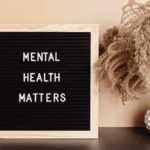Obsessive-compulsive disorder (OCD) is a mental health condition in which a person experiences a pattern of unwanted thoughts and fears called obsessions. These obsessions are so intense that they cause you to engage in the same behaviors, over and over again, called compulsions. If you try not to do so, you face intense stress and frustration.
OCD is not just a term used to refer to things that are important to you. A diagnosis of OCD can help you to find ways to navigate stress and rebuild a healthy foundation for your future. You do not have to struggle with those bothersome urges and thoughts that just keep coming back.
At Willow Creek Behavioral Health, we offer treatment for anxiety disorders, which includes specialized tracks to manage OCD.
What Is OCD?
Obsessive-compulsive disorder is a long-term disorder where you are faced with uncontrollable thoughts or obsessions and behaviors, or compulsions, that make you engage in the same activities over and over again. Data from the National Institute of Mental Health, about 1.2% of US adults suffer from OCD. Impairment ranges from severe to mild.
Symptoms of OCD include experiencing both obsessions and compulsions. Obsessions may include a theme such as:
- Needing things to be orderly or balanced
- Struggling with uncertainty
- Fearing dirt or contamination
- Aggressive thoughts of losing control
- Thoughts of harming others
- Unwanted thoughts related to aggression, sexual topics, or religious subjects
- Feelings of intense stress when something is out of order
- Avoiding situations that cause obsessions
Symptoms of compulsions include repetitive behaviors you feel like you have to do, which often lead to creating rituals that you must follow to control the anxiety that happens if you don’t manage compulsions. Most of the time, compulsions are not reasonable and often don’t relate to the issue that they are intended to fix. Examples include:
- Washing and cleaning
- Ordering
- Checking
- Counting
- Demanding reassurance
- Following a very strict routine
Some of the most common types of compulsions include counting in certain patterns, handwashing until your skin hurts, or checking something over and over again to make sure it is the way it should be. You may have to have items specifically placed, or you may say a prayer, word, or phrase over and over again in your mind.
If you have any of these signs that your anxiety is not healthy, you can get help, and we can be there to guide you.
When Is OCD Something to Treat?
Getting help for OCD is not something to put off, no matter how insignificant you may believe your compulsions or obsessions seem to be. All anxiety disorders need treatment. If your obsessions and compulsions are impacting your quality of life or health, you need to seek immediate guidance.
For many people, symptoms begin over time and grow or worsen. How serious they are and how much they impact your daily life is not always certain. You may develop symptoms that begin to take over every facet of your life, making it hard to work, maintain relationships, or just get through the day. Some people turn to alcohol and drugs as a way to manage these thoughts and intense feelings.
Even if your symptoms seem to be manageable, treatment can afford you peace of mind and comfort. It may also help you to avoid the condition becoming disabling. There are potential complications that develop from OCD, including:
- Extensive time spent on ritualistic behaviors that take you away from other tasks
- Poor quality of life
- Health issues, including skin conditions
- Difficulty maintaining interests and working
- Struggling to maintain relationships with people who do not understand
- Thoughts of suicide or behaviors of self-harm
If you are experiencing any of these risks, do not wait. Visit Willow Creek immediately. Our Green Bay, WI behavioral health treatment center accepts walk-ins, and we can provide you with immediate support.
How Is OCD Treated?
After a formal diagnosis, treatment for OCD is dependent on your symptoms and needs. For most people, cognitive behavioral therapy, a form of psychotherapy, is a starting point. We use a range of therapies to help your brain overcome the limitations it is facing and restructure thoughts in a healthy manner.
Many people need medication to gain some level of control. A variety of medications can help to control both obsessions and compulsions. Expect us to work carefully with you to determine the best treatment plan for your needs.
Do Not Wait to Get Help: Contact Willow Creek for Help with OCD
OCD treatment in Green Bay can be highly effective and restorative. Whether this is a new condition or something you have managed your whole life, we can help. Contact Willow Creek Behavioral Health now to speak to our team about the care you need.





